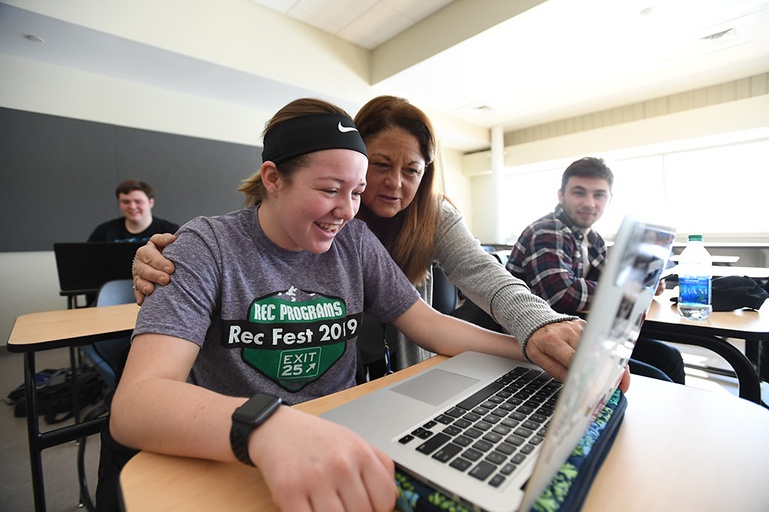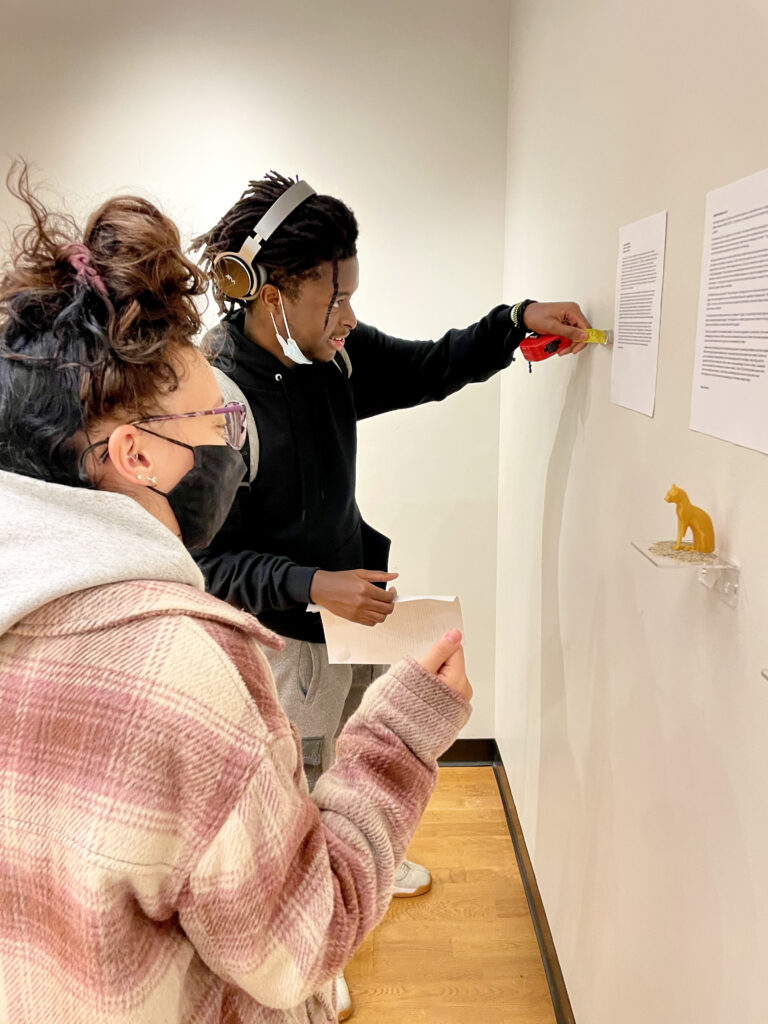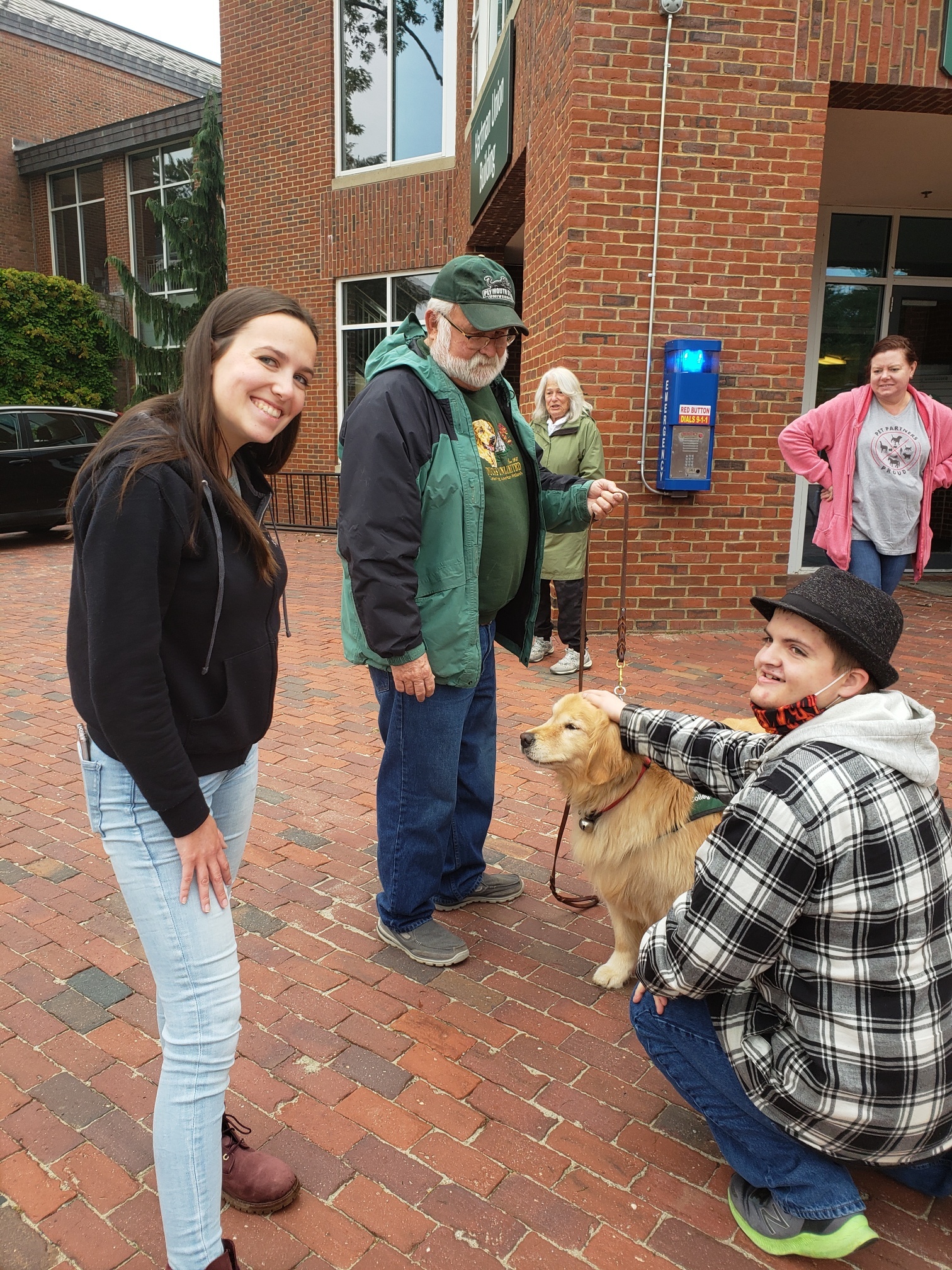
The Integrated Cluster Model is about redesigning the university so that it works better for learners.
What is Cluster Learning
The Integrated Cluster Model is about redesigning the university so that it works better for learners. This model encourages students to work on real-world issues, ideas, and challenges and strives to make our community’s knowledge and expertise accessible to anyone who needs it. Cluster Learning is the teaching and learning approach that powers this unique academic environment. It centers on three practices:
- interdisciplinary inquiry and research
- open educational practices that remove barriers and empower students to contribute to the knowledge commons
- project-based learning that extends past the walls of the classroom
Cluster Learning is how PSU students practice the four Habits of Mind that are the cornerstone of our HoME (Habits of Mind Experience) general education program. The Habits of Mind are: purposeful communication; problem solving; integrated perspective; and self-regulated learning. Cluster Learning is designed to give students regular, engaging opportunities to develop these key habits!
The Three Practices of Cluster Learning

Interdisciplinary
Cluster Learning invites students to work in collaborative groups across the disciplines. One example of this kind of interdisciplinary curriculum is our upper-level, integrated capstone courses (or INCAPs), where students from a range of majors come together to work on real-world projects.

Open
Open Education is a rapidly growing approach to education that focuses around equity and access. It seeks to open doors to learning for anyone, regardless of who they are or what resources or challenges they have.

Project-Based
Project-based Learning is an approach to education that allows students to learn the content of a class by working on a project that has some impact on the world. The project is the vehicle for teaching the important skills, approaches, and knowledge that students need to learn.


Interdisciplinary pedagogy requires that we constantly alert students to what they are doing and why, and how their own disciplines, interests, and backgrounds relate to others in surprising and delightful ways.
Professor Abby Goode
Open Education is a rapidly growing approach to education that focuses around equity and access. One important aspect is its commitment to Open Educational Resources (called “OER”), which are free and openly-available learning materials. In the last five years, Plymouth State faculty have saved our students almost 2 million dollars in textbooks costs by shifting to OER, which helps make college more affordable. In addition, Open Education asks faculty to think about how their students’ voices matter to the future of our world. Instead of asking students to jump through hoops doing assignments that will ultimately be headed nowhere, Open Education involves students in making new knowledge and sharing it with the public as part of the learning process.

PSU Student Savings on Textbook Costs, Since 2016

Not only do I want to create more interactive learning objects for my
students to enhance their learning, but I want to engage them in the creation of these as well, and then openly license them so other faculty and students in our field will have free access.
Professor Julie Bernier
PSU Faculty Resolution on OER
Passed without objection in April 2023
“Plymouth State University faculty formally acknowledge the use of open educational resources (OERs) as an innovative, learner-centered solution to the escalating cost of higher education. PSU faculty recognize the well-established correlation between the cost of learning materials and student success, and encourage the use of OERs, thereby affording students reputable and sustainable alternatives, especially to commercial textbooks and access codes. As an integral part of the PSU learning and teaching mission, faculty resolve to identify, develop, adapt, and/or adopt pedagogically-appropriate OERs whenever deemed appropriate by the instructor of record, and focus sustained effort on increasing the accessibility of these materials to all of our community’s learners.”

Project-based Learning is an approach to education that allows students to learn the content of a class by working on a project that has some impact on the world. The project is the vehicle for teaching the important skills, approaches, and knowledge that students need to learn. Students are challenged to engage in sustained inquiry about an authentic problem or question. They decide how to address that problem or question and receive feedback and critique on each stage of their project development, revising the project in response. They ultimately create some sort of public product that engages the world outside of the classroom.

Students not only seek out information and skills, they participate in
deciding which knowledge and skills the project calls for, then discover
how to apply that knowledge and those skills to the problem.
Professor Scott Coykendall
Project Gallery
Art History Teaching Gallery
Artworks made in distant parts of the world during prehistoric to medieval times can feel remote and inaccessible to students. At the same time, cutting-edge technologies may seem equally alien. By engaging PSU’s state-of-the-art MakerSpace Open Lab, students in AH1150 Foundations of Art History Foundations: Prehistory-1400 3D-printed artifacts from this era and displayed them in our Art History Teaching Gallery Open Lab. Their accompanying captions contextualized the pieces with historical research and reflected on how 3D printing changes perceptions of the objects. Have they become more accessible? Does it contradict their original cultural meanings or functions? What would the original makers have thought of this technology compared to the processes and materials available at their own time? Students enjoyed this low-stakes application of the technology and the high-payoff of seeing their work displayed. Conceptualizing and executing the display themselves also provided hands-on career skills. In the future, these objects will form the core of a non-disposable teaching collection so that the past can come alive for future students.
American Food Issues
Event Marketing and the Panther Prowl
Event Marketing is an interdisciplinary class; students from any major are welcome to join and many do. The course uses open education resources and incorporates project-based learning. Students actually create, plan and execute an event. In fall of 2021 the event was the Panther Prowl. This event brings together various parts of campus so it highlights the importance of collaboration. The idea for Panther Prowl came from the Faculty Fundraising Committee which wanted to raise money for student scholarships but also allow the campus to come together after Covid and rebuild our community, meet new students, walk with alumni, etc.
We are hoping that this event may become a PSU tradition as we walk for fun, recreating the commencement walk and gathering at the athletic fields to welcome the football players via a human tunnel onto the field.
Empty Bowls
Empty Bowls was an activity involving Residential Life, The Student Support Foundation, the Office of Community Impact, the Student Art Collective, and the PSU ceramics program in which students, faculty, staff, alumni, and local artisans assisted in creating hand made bowls.
The PSU community attended a a luncheon event where they donated money in exchange for a handmade bowl that they could eat out of and take home with them. Proceeds went to the PSU Student Support Foundation.
Cluster Comp
Cluster comp courses are designed around themes chosen to appeal to PSU students, fusing composition to other disciplines and interests. Recent courses have included “paddle comp”, “pet comp”, and “ski comp.” Contextualizing writing in this way enhances student learning and engagement, connects curriculum with place and community, and widens the footprint of PSU with regional partners.
Through these connections, students also make cluster- and discipline-specific connections that provide a catalyst for integrated and interdisciplinary work across campus.





